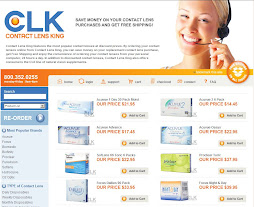Findings from a three-year study conclude that overall self-esteem is improved in young girls when they wear contact lenses rather than eyeglasses.
The study was conducted at five clinical centers in the U.S. between September 2003 and October 2007. A total of 484 nearsighted children between the ages of eight and 11 – 59 percent female and 41 percent male – were assigned randomly to either wear glasses or contact lenses for the duration of the study.
The study uniquely combined optometry with psychology to demonstrate the benefits of contact lenses beyond their ability to improve vision.
“Girls are particularly vulnerable to social and psychological distress during the transitional years of early and middle adolescence and this data suggests that for girls, in particular, a switch from glasses to contact lenses may result in an improvement in self perception,” said Mitchell J. Prinstein, Ph.D., Professor and Director of Clinical Psychology at the University of North Carolina at Chapel Hill and a co-author of the Adolescent and Child Health Initiative to Encourage Vision Empowerment (ACHIEVE) Study. “This study demonstrates than an intervention as simple as switching youths’ glasses to contact lenses can help boost girls’ sense of self-worth and self-efficacy during this stage of their development,” Dr. Prinstein said.
Because researchers expected that a unique vulnerability might be present among the female participants, the results were examined based on gender.
“Contact lenses significantly improve how children feel about their physical appearance, acceptance among friends, and ability to play sports. Contact lenses even make children more confident about their academic performance if they initially dislike wearing glasses,” said Jeffrey J. Walline, O.D., Ph.D., and leader of the ACHIEVE study.
Parents and eye care practitioners should be aware of all of the benefits of contact lenses when determining what is the most suitable means of vision correction for their young patients.
Subscribe to:
Post Comments (Atom)





No comments:
Post a Comment